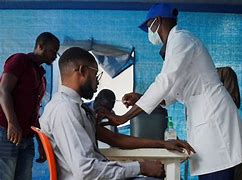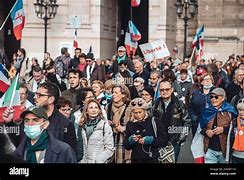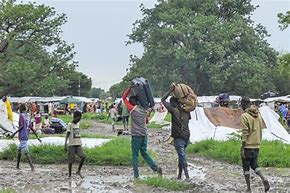Nigeria recently made history as the first African country to receive 10,000 doses of mpox vaccines. This significant development comes in response to the outbreak of a viral disease that has raised global concern, prompting the World Health Organization (WHO) to declare it a public health emergency.
“Nigeria, on Tuesday, received 10,000 doses of mpox vaccines, becoming the first country in the African region to receive doses.”
The donated Jynneos (MVA) vaccine by Bavarian Nordic pharmaceutical firm was generously provided by the United States government. These vaccines are earmarked for deployment across five states with the highest incidence of mpox cases. The vaccination campaign will target 5,000 individuals considered most vulnerable to mpox, including close contacts of confirmed cases and frontline healthcare workers.
“The Federal Ministry of Health understands the importance of having a healthy nation… all policies and collaborations aim at ensuring our citizens’ health.”
During the formal handover ceremony in Abuja, Prof Muhammad Pate, Nigeria’s Coordinating Minister of Health and Social Welfare expressed gratitude towards the US government for their donation. He emphasized Nigeria’s commitment to enhancing its population’s well-being through initiatives like this vaccine drive.
“This is a spirit of cooperation and collaboration through the years… Your collaboration is greatly appreciated, and this will significantly aid those in need.”
In anticipation of administering these life-saving vaccines, Nigeria’s National Agency for Food and Drug Administration and Control has granted Emergency Use Authorization for the mpox vaccine. Furthermore, efforts have been made to strategically position these vaccines for rapid distribution among priority groups.
As reported by Africa Health Times [SOURCE], Dr Matshidiso Moeti underscored WHO’s appreciation for international solidarity demonstrated through this vaccine donation:
“The delivery of mpox vaccines not only adds to halting the virus but also showcases global unity during public health crises.”
“There are currently serious gaps in mpox vaccine access… WHO is working with countries and manufacturers to ramp up access.”
MPox outbreaks have revealed critical shortcomings in vaccine accessibility across Africa. To address this challenge, WHO is collaborating with various stakeholders to enhance vaccine availability through mechanisms like Emergency Use Listing. Additionally, partnerships with organizations such as Gavi and UNICEF are facilitating donations from nations with surplus vaccine supplies.
In response to ongoing cases within Nigeria and other affected African countries…
“WHO is supporting governments in strengthening surveillance… enhancing cross-border surveillance at key entry points.”
Despite reporting several cases over recent years – with a peak in 2022…
“As of August 10th, 2024 there were 786 suspected cases… Out of these over 3500 cases are laboratory-confirmed.”
Efforts are underway to bolster outbreak response strategies within Nigeria while fortifying preparedness measures in yet-to-report case regions under WHO guidance.
Attribution Link: www.africahealthtimes.com [SOURCE]









Leave feedback about this